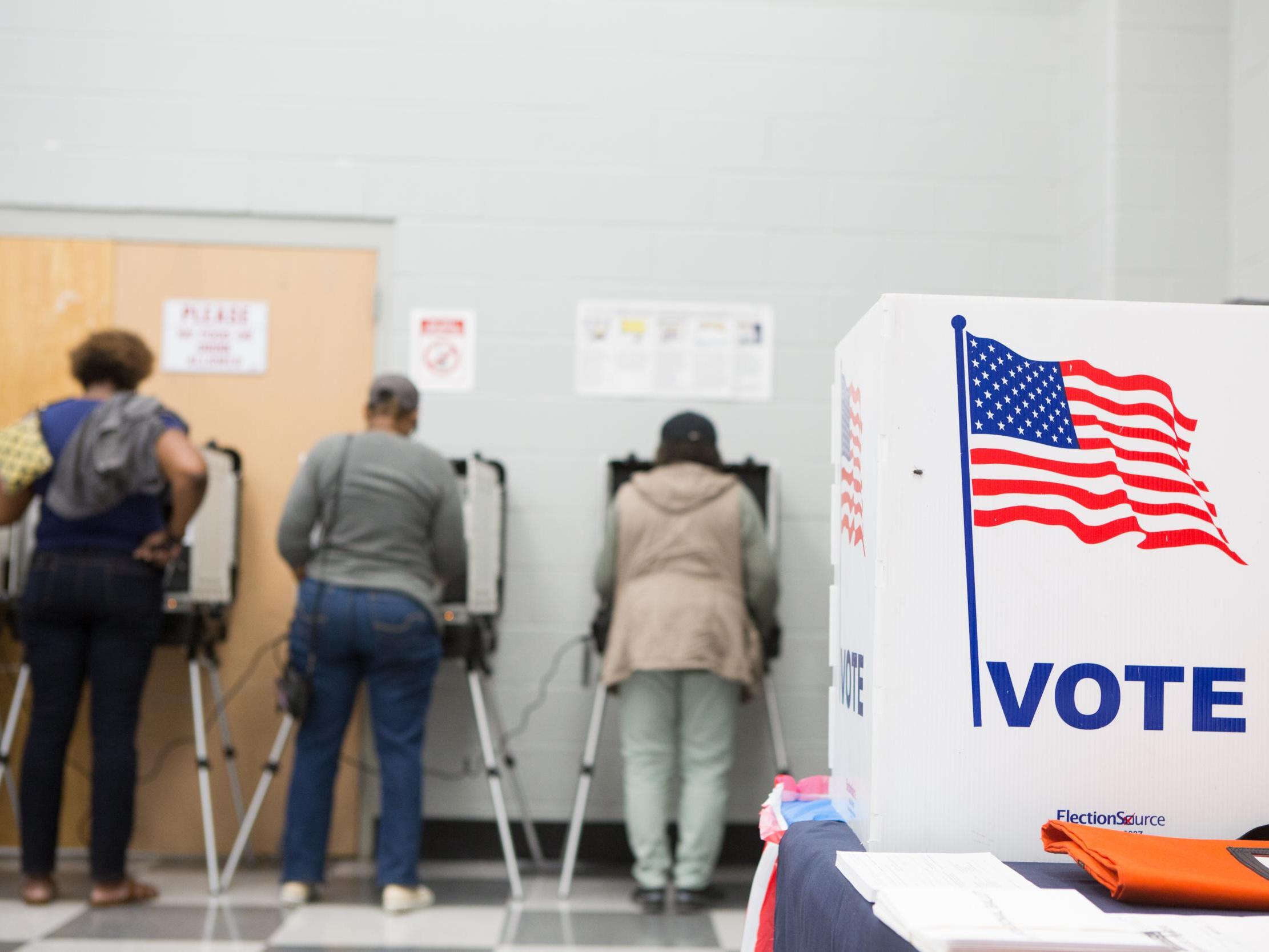Georgia could be ordered to use paper ballots over fears electronic voting machines vulnerable to hacking
State allowed its election system to grow ‘way too old and archaic,’ judge says

Your support helps us to tell the story
From reproductive rights to climate change to Big Tech, The Independent is on the ground when the story is developing. Whether it's investigating the financials of Elon Musk's pro-Trump PAC or producing our latest documentary, 'The A Word', which shines a light on the American women fighting for reproductive rights, we know how important it is to parse out the facts from the messaging.
At such a critical moment in US history, we need reporters on the ground. Your donation allows us to keep sending journalists to speak to both sides of the story.
The Independent is trusted by Americans across the entire political spectrum. And unlike many other quality news outlets, we choose not to lock Americans out of our reporting and analysis with paywalls. We believe quality journalism should be available to everyone, paid for by those who can afford it.
Your support makes all the difference.A US state could be forced to use paper ballots at its next election over fears its electronic voting machines are vulnerable to hacking.
According to district judge Amy Totenberg, Georgia allowed its election system to grow “way too old and archaic” and now has a deep hole to dig out of to ensure the constitutional right to vote is protected.
Ms Totenberg is in the difficult position of having to decide whether the state, which plans to implement a new voting system next year, must immediately abandon its outdated voting machines in favour of an interim solution for special and municipal elections to be held this autumn.
Election integrity advocates and individual voters sued Georgia election officials in 2017, alleging the touchscreen voting machines the state has used since 2002 are unsecure and vulnerable to hacking.
They have asked Totenberg to order the state to immediately switch to hand-marked paper ballots.
But lawyers for election officials have argued that the state is in the process of implementing a new system, and it would be too costly, burdensome and chaotic to use an interim system for the upcoming elections and then switch to the new permanent system next year.
A law passed this year and signed by Georgia governor Brian Kemp details a new system in which voters make their selections on electronic machines which print out a paper record that is read and tallied by scanners.
State officials have said it will be in place for the 2020 presidential election.
But lawyer Bruce Brown, who represents the Coalition for Good Governance and a group of voters, said: “We can’t sacrifice people’s right to vote just because Georgia has left this system in place for 20 years and it’s so far behind.”
Lawyer David Cross, who represents another group of voters, urged the judge to force the state to take responsibility, adding: “You are the last resort.”
Georgia’s voting system drew national scrutiny during the closely-watched contest for governor last November in which Mr Kemp, a Republican who was the state’s top election official at the time, narrowly defeated Democrat Stacey Abrams.
The complainants had asked Ms Totenberg in August to order Georgia to use hand-marked paper ballots for that election.
But while Ms Totenberg expressed grave concerns about vulnerabilities in the voting system and scolded state officials for being slow to respond to evidence of those problems, she said a switch to paper ballots so close to the midterm election would be too chaotic.
She warned state officials that further delay would be unacceptable.
However the judge seemed conflicted on Friday at the conclusion of a two-day hearing.
She said: “These are very difficult issues; I’m going to wrestle with them the best that I can, but these are not simple issues.”
Ms Totenberg did not say when she would announce her ruling.
Associated Press contributed to this report.
Join our commenting forum
Join thought-provoking conversations, follow other Independent readers and see their replies
Comments